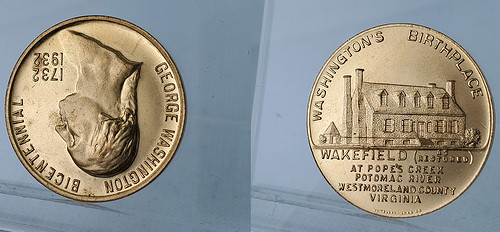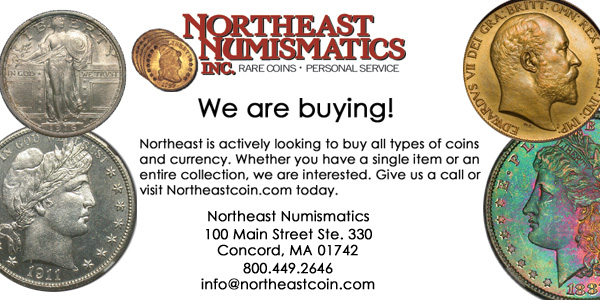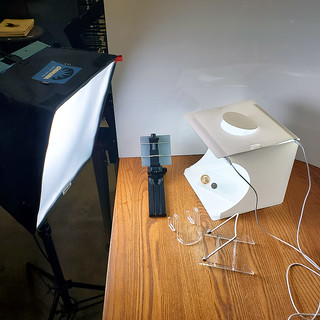
PREV ARTICLE
NEXT ARTICLE
FULL ISSUE
PREV FULL ISSUE
ANS COIN PHOTOGRAPHY TIPSCheck out the American Numismatic Society's Pocket Change blog for another useful set of tech tips, this time for photographing coins for sale on eBay. Here's an excerpt from the article by John Thomassen. -Editor
While the photographic process associated with cataloging the American Numismatic Society’s various holdings is more rigorous and precise than what is required for eBay, the steps for both are generally similar. Once the individual objects and lots have been selected, they are taken to an area separate from the equipment used to photograph collection objects. This photography setup is comparatively low-tech, and relies on an LED light box, a larger professional studio light, a tripod, and staging platforms and props where individual objects and lots can be quickly arranged, photographed, and placed back into protective flips, archival bags, and tubes. The setup is a balance between speed and efficiency coupled with taking sharp, clear, and well-lit photos that require minimal editing. Because speed and efficiency are critical, photos are taken on an ordinary smartphone so that images can be wirelessly transferred to a computer workstation for editing immediately after photos are taken. Likewise, care is taken to ensure that each shot has the proper lighting (both intensity and color) best suited to the objects being photographed, are angled correctly to catch the light and accurately highlight the objects’ surfaces, are clear and sharp by way of a steady tripod adapted to hold a smartphone, and are photographed at a distance proportional to the size of the object. 
Once photos have been taken and all objects are safely stored away, the files can be wirelessly transferred to a computer workstation, where they are edited in a computer program to be more presentable on eBay. Editing is a crucial step, but also one where overzealous editing is discouraged. Photos destined for eBay undergo two steps: rotating the object to ensure correct orientation, and replacing the background with a neutral gradient. You may have noticed that in the above photos, the obverse of the George Washington medal was completely upside down; this was not a mistake, but rather a move to ensure that any shadows appeared at the rear of Washington’s head, and not along his face. After the objects have been rotated, the background is removed, and a neutral gradient is added to avoid the stark contrast of a pure white background.
To read the complete article, see:

Wayne Homren, Editor The Numismatic Bibliomania Society is a non-profit organization promoting numismatic literature. See our web site at coinbooks.org. To submit items for publication in The E-Sylum, write to the Editor at this address: whomren@gmail.com To subscribe go to: https://my.binhost.com/lists/listinfo/esylum All Rights Reserved. NBS Home Page Contact the NBS webmaster 
|
